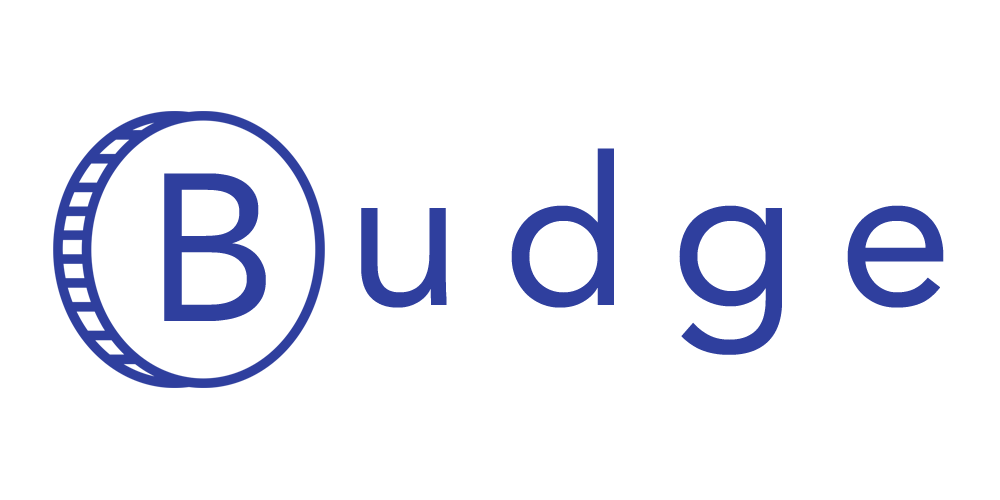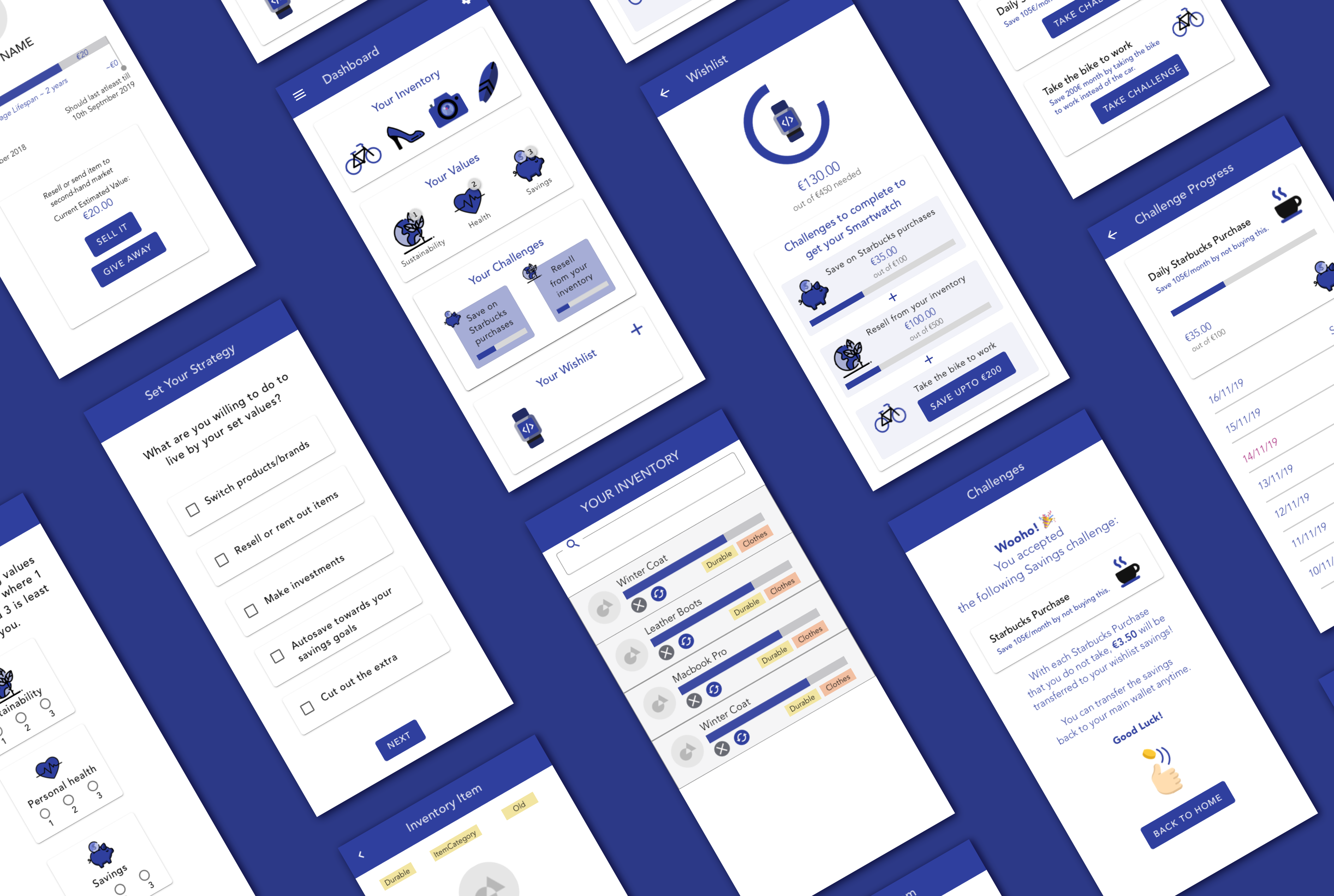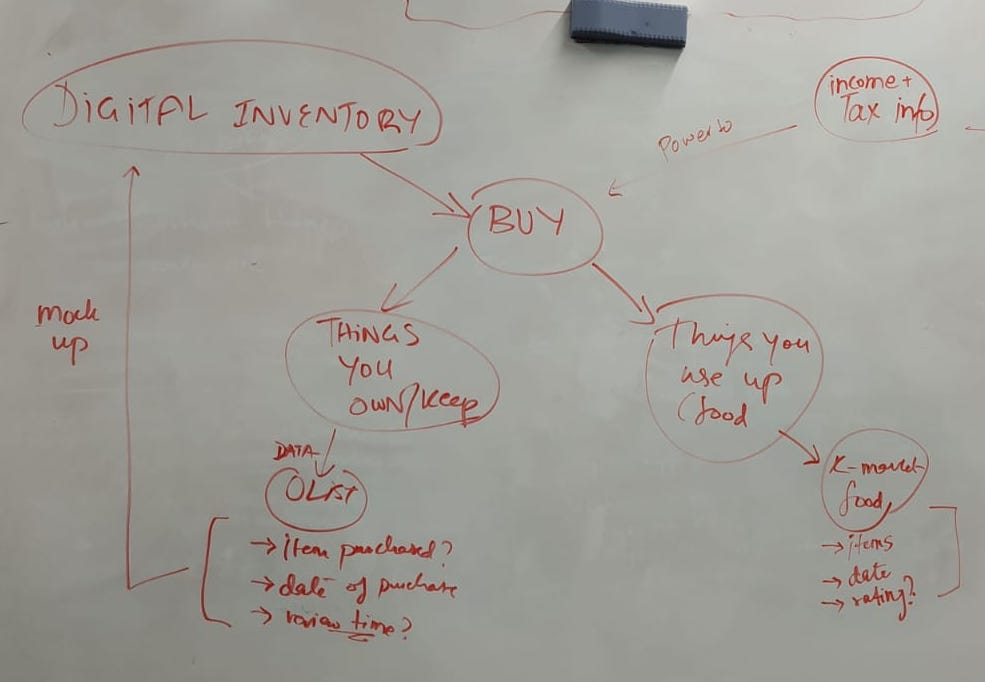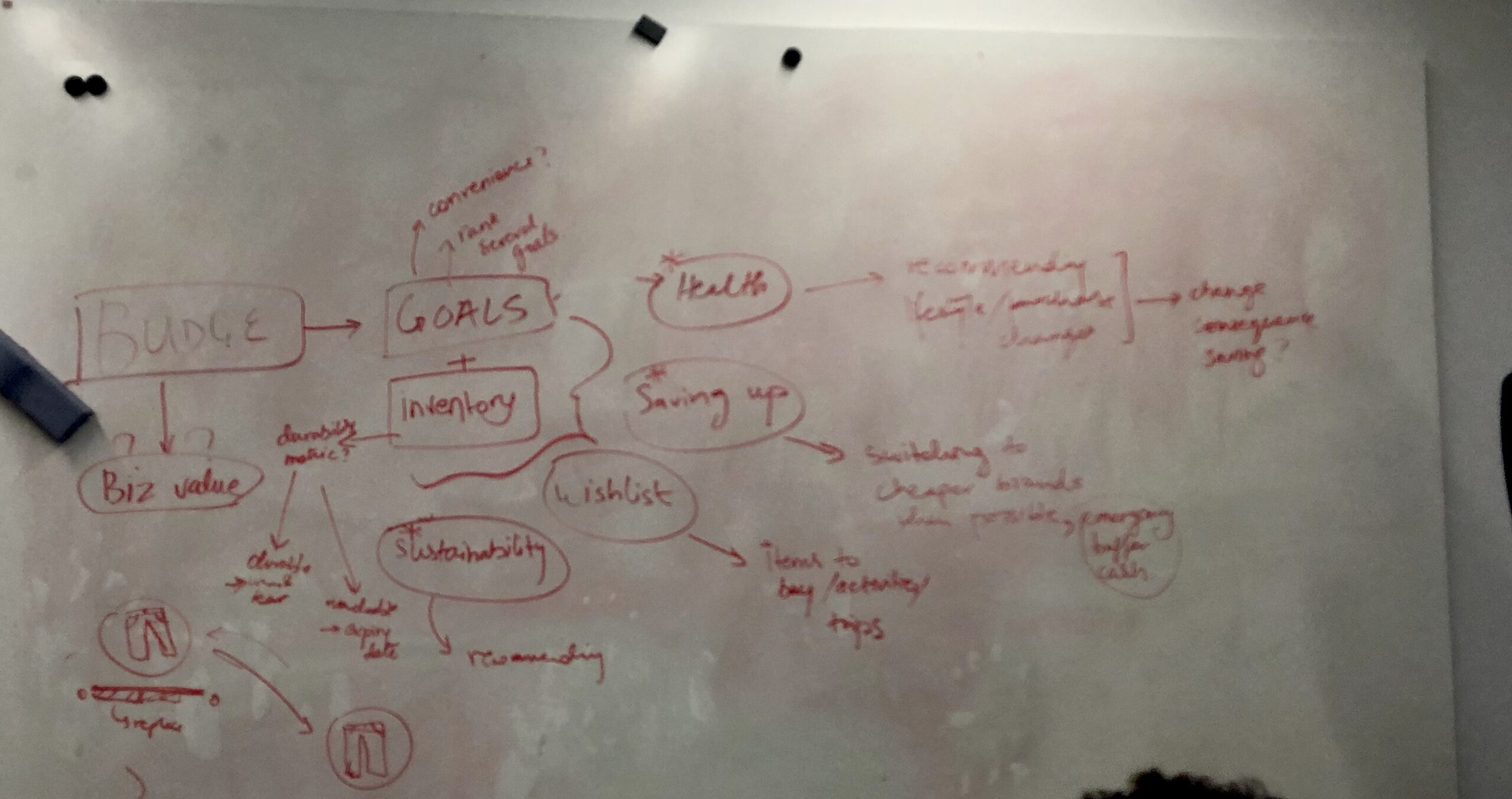Budge – Junction 2019

Society today is aware of the need for change to deal with climate change, demographic change, and overconsumption. However our behaviour is yet to help us reach these values. We still buy things we do not need and we are not aware of small changes in lifestyle (i.e. taking the car instead of bike) actually impact the achievement of those values (like sustainability).
Budge is our team’s solution for this, conceived during the Junction 2019 Hackathon. It enables users to financially plan based on their own values for the future they want.
The Challenge:
We took part as a team of five including Ferran Montraveta Roca, Javier Benitez, Kacper Skawiński, Naima Volz and myself. We decided to work on a solution in the Data Economics track tacking the partner challenges by BlackRock, CGI & K-Group, Columbia Road, Aiven Services and Microsoft.

My Role(s):
– Facilitation of ideation sessions and brainstorming the solution
– UI design in Sketch
– Helping crafting Pitch storyline
Tools & Methods Used:
– Brainstorming, ideation mind-mapping
– Sketch for mockup and UI design
– Flutter
– GitHub
The Process:
We started with ideation around the concepts of what “improving your financial future” entails. Since the prompts of the given challenges asked us to think about the “cost per lifetime” value of what we own, we brainstormed some problems in these areas.
Main ideas:
Spending Habits:
– People buy expensive things they rarely use
– Some people are dedicated to specific brands, some do not care about changing them
Lifetime of products:
– Preference to cheaper products – but they are unsustainable
– Cheaper often means less durability and shorter life
Transparency and Awareness:
– People don’t know how much they save by switching products either to save money or be more sustainable
– An inventory of what you own could help you “manage assets” better and know when or what to change

Structuring the data for the digital inventory within the app

Mind Map for the different use cases around which Budge would work
Through Budge, we enable people to manage their financials based on their savings goals and personal values. Users can define and rank life values they target to live by such as sustainability or health and set concrete saving targets like “Save up for a €500 smartwatch”.
They can then set strategies to achieve their value-based lifestyle and saving goals. Based on data, our app suggests customized behaviors to achieve the goals like not taking the daily Starbucks coffee, or cycling to work instead of taking the car. Users can accept these small lifestyle “challenges”. If they, for example, take on the challenge of not buying the daily Starbuck’s coffee (that we know of from their purchasing habits), the money for it will instead be automatically transferred to the savings towards their wishlist. However, the user can, of course, transfer the money back to the main account anytime.
Based on actual data, there is also a digital inventory created of all the non-durables (i.e. food with an expiry date; clothes) and durables (i.e. car, electronics) that users have bought and own. Data to create this inventory is retrieved from financial purchasing data (here: Kaggle Dataset of eCommerce purchases), invoices and booking confirmations (i.e. Gmail) and data shared by the stores (here: K-Market). The user is enabled to make informed decisions based on their own data. Users then can, for example, give away or sell the items in a third-party second-hand platform and contribute further towards goals like “sustainability or “savings”. Here lies a value for business partners, too. Companies like Patagonia that are taking back their own clothes to sell them second hand, get encouraged to become a value-based brand that align with the users’ behaviors and goals.
Some sample screens from the application
The Outcome:
A first version of the application, with data imported from the provided datasets. It showcases the carious ways in which users could begin planning their expenditure and inventory based on their own values with many options of scaling up to include many product and value types.
The project was third place among the peer-reviews in the Data Economics track at Junction 2019 from over 50 submissions in the track. You can find it on the Junction website here.
The project can be found on GitHub here.
Final Pitch Deck




